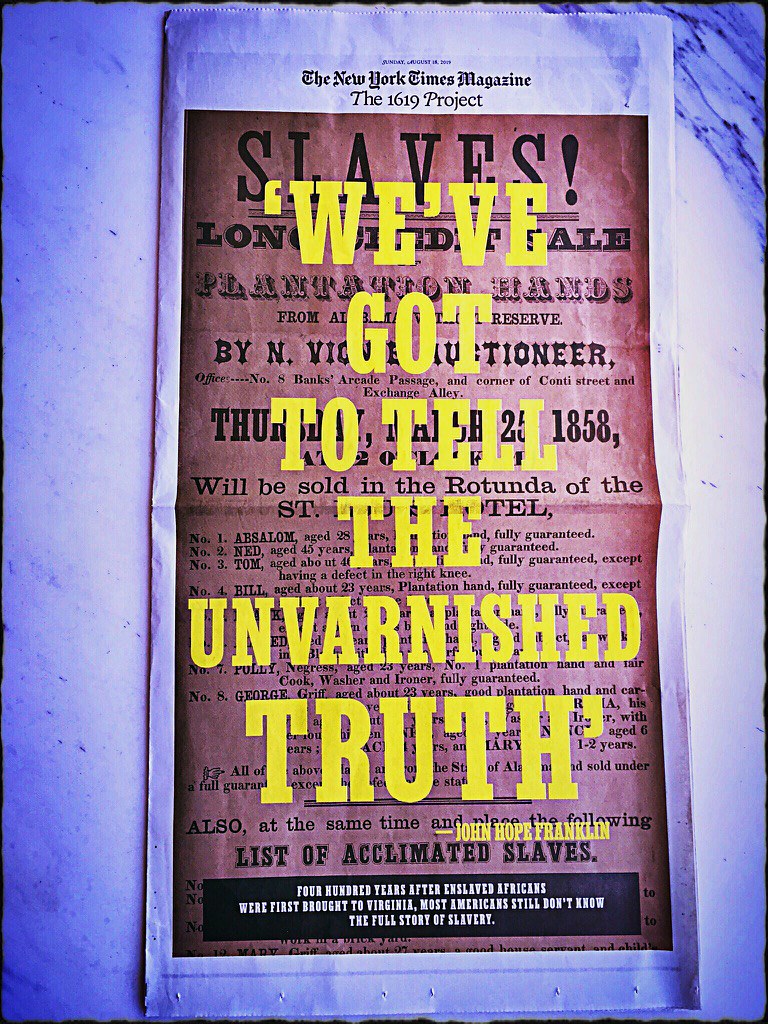A bill to ban Iowa public schools from incorporating the 1619 Project – which would offer curriculum with more emphasis on slavery and the contributions of Black Americans to America – has recently advanced to the Iowa House’s Education Committee. On February 9, House File 222 received subcommittee approval and began the next steps to becoming a law.
House File 222 would ban schools, colleges, and regents institutions from integrating the 1619 Project or “any similarly developed curriculum” into U.S history classes. The bill would also take state aid away from institutions that have adopted it.
The 1619 Project, an initiative published in 2019 by The New York Times Magazine, aims to reframe the way slavery and the contributions of Black Americans are presented in schools. The Project consists of a series of essays that put the contributions of Black Americans front and center when reviewing American history.

The 1619 Project was created for The New York Times Magazine by Iowa native Nikole Hannah-Jones, who won a Pulitzer Prize for the project.
House File 222, sponsored by Representative Skyler Wheeler from Orange City, was first introduced January 27. The bill was moved to the subcommittee the following day and was recommended for passage on February 9.
“This bill does not prohibit the teaching of slavery or Jim Crow, and does not change a single social studies standard,” Rep. Wheeler says. “It also does not ban the use of the Project in another subject area, such as Literature.”
In support of House File 222, Wheeler states that The 1619 Project is riddled with errors and seeks to divide America while pushing a Leftish political agenda.
“The 1619 Project seeks to teach students that America was founded on slavery and racism, not freedom and liberty,” Rep. Wheeler says. “This bill ensures that our history classes will teach facts and truth, not lies and propaganda.”
Representative Ras Smith, a Democrat from Waterloo and a strong opponent of the bill, disagrees. Rep. Smith says that the Project provides students an opportunity to get a fuller picture of American history.
“There’s a certain pride in knowing where we came from, and knowing where we need to go,” Rep. Smith says. “Black Americans’ contribution to this country is valid every single day, not just in February.”
Iowa is not the only state to oppose the Project. Legislation resembling Iowa’s bill has been introduced in Arkansas, Mississippi, Missouri, and South Dakota.

Curriculum incorporating The 1619 Project can be accessed remotely through online databases. The Pulitzer Center, an organization that provides education and support for journalism programs by raising awareness of underreported global issues, provides curriculum and learning materials for those who wish to incorporate The 1619 Project into their lesson plan.
“A number of parents who are home-schooling their children have reached out to us since the project launched,” Director of Education, Mark Schulte says. “And any student or teacher is welcome to access the materials for free at any time if they’d like to dig into it.”
According to the Pulitzer Center, more than 4,500 teachers across the United States have incorporated materials provided by the Center. Schulte has seen the positive impact of incorporating The 1619 Project in classrooms, and stated that lawmakers who oppose it are misreading the project.
“I think it is very important for us to look at how American history is taught and ask ourselves whether the stories of Black and Indigenous Americans are told truthfully and with representation from those communities,” Schulte says. “There is no benefit from censoring history.”
